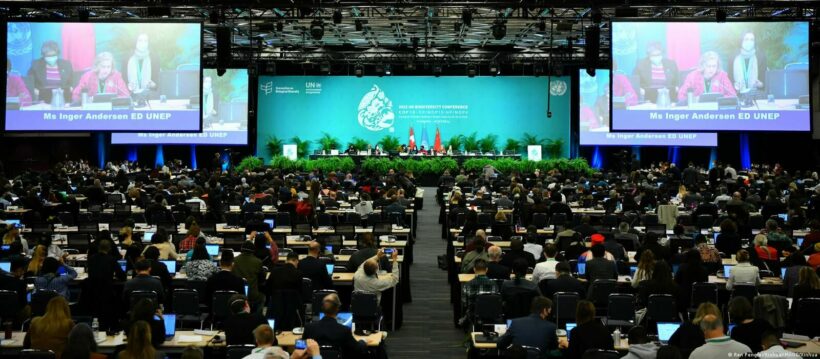The UN reaches historic biodiversity agreement to protect one-third of planet by 2030

The United Nations has reached a historic biodiversity agreement that will aim to protect one-third of the planet by 2030. The landmark deal is aimed at safeguarding diversity by protecting vital ecosystems such as wetlands and rainforests and indigenous peoples’ rights. The agreement came at the COP15 UN biodiversity summit in Montreal, Canada. Previously the summit was set to be held in China but was postponed due to the Covid pandemic. UN Secretary-General Antonio Guterres lauded the decision.
“We are finally starting to forge a peace pact with nature.”
The summit in Montreal had been regarded as essential to putting nature on a path to recovery. Canada’s Minister for the Environment and Climate Change, Steven Guilbeault, compared the decision to the Paris climate deal which sees nations agreeing to keep the world’s temperature rise below 2C.
“It is truly a moment that will mark history as Paris did for the climate.”
The president of COP 15, Minister Huang Runqui, approved the agreement despite objections from the Democratic Republic of Congo, which said it could not get behind the deal. But, intense negotiations marred the agreement as the major sticking point was over how to fund conservation efforts. Furthermore, some say the deal still is not enough. Sue Lieberman of the Wildlife Conservation Society says although the agreement had several “good and hard-fought elements,” she says it could have gone further to “truly transform our relationship with nature and stop our destruction of ecosystems, habitats and species.”
According to the BBC, scientists have been warning for years that deforestation and loss of grasslands at unprecedented rates have seen humans pushing the planet beyond safe limits. They say such unsafe levels can increase the risk of diseases like CoV-2, Ebola, HIV, and SARS from wild animals spilling over into humans.
But, the agreement was one unprecedented step forward in the right direction. Such details of the deal include maintaining, enhancing and restoring ecosystems. Maintaining genetic diversity and slowing the extinction of species are also factors of the new agreement. “Sustainable use” of biodiversity, ensuring natural resource benefits, and sharing those equally is another aspect of the agreement. Indigenous peoples’ rights are also included in the agreement as part of an increased effort in protecting such native groups of people.
Latest Thailand News
Follow The Thaiger on Google News:


























